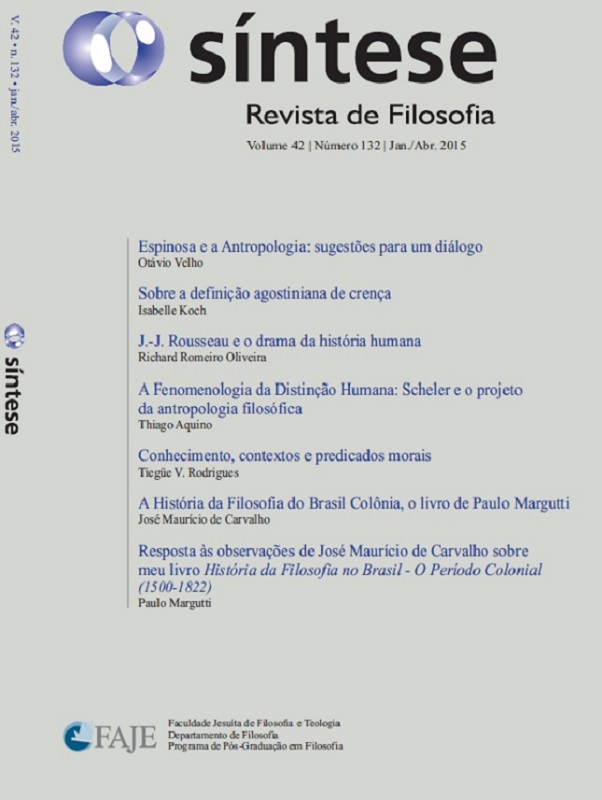SOBRE A DEFINIÇÃO AGOSTINIANA DE CRENÇA
DOI:
https://doi.org/10.20911/21769389v42n132p15-24/2015Palavras-chave:
Crença, representação, assentimento, autoridade, vontade, certeza, Deus, graça.Resumo
Resumo: Agostinho define a crença, em A predestinação dos santos, como o ato de representar alguma coisa dando a ela nosso assentimento. Pode-se achar que essa definição carece de precisão: como São Tomás notará comentando a definição, vários de nossos atos cognitivos mobilizam representação e assentimento a um só tempo, mesmo que eles não sejam crenças. Além do mais, a definição também é desconcertante, dado seu contexto. Em A predestinação dos santos, Agostinho quer refutar os semipelagianos que atribuem à (boa) vontade humana o início da crença em Deus, o initium fidei. A menção a um assentimento acompanhando a representação tem, portanto, por função, não fazer as crenças dependerem daquele que as possui, mas atribuir a iniciativa delas a Deus. Ensaiaremos, portanto, compreender a definição confrontando-a com a forma como Agostinho descreve nossas crenças em geral.
Abstract: In the Predestination of the Saints, Augustine defines belief as the act of representing a thing by consenting to it. This definition may seem imprecise: as saint Thomas commented, several cognitive acts muster representation and consent simultaneously, although they are not beliefs. Moreover, the definition is also confusing, given its context. In The predestination of the Saints, Augustine wishes to disprove the Semi-Pelagians for whom the initial step towards believing in God, the initium fidei, is atributed to human (good) will. By mentioning that consent accompanies representation, the aim is to show that beliefs do not depend on those who hold them but initiate in God. We will therefore aQempt to understand this definition by confronting it to the way Augustine describes our general beliefs.Â






























